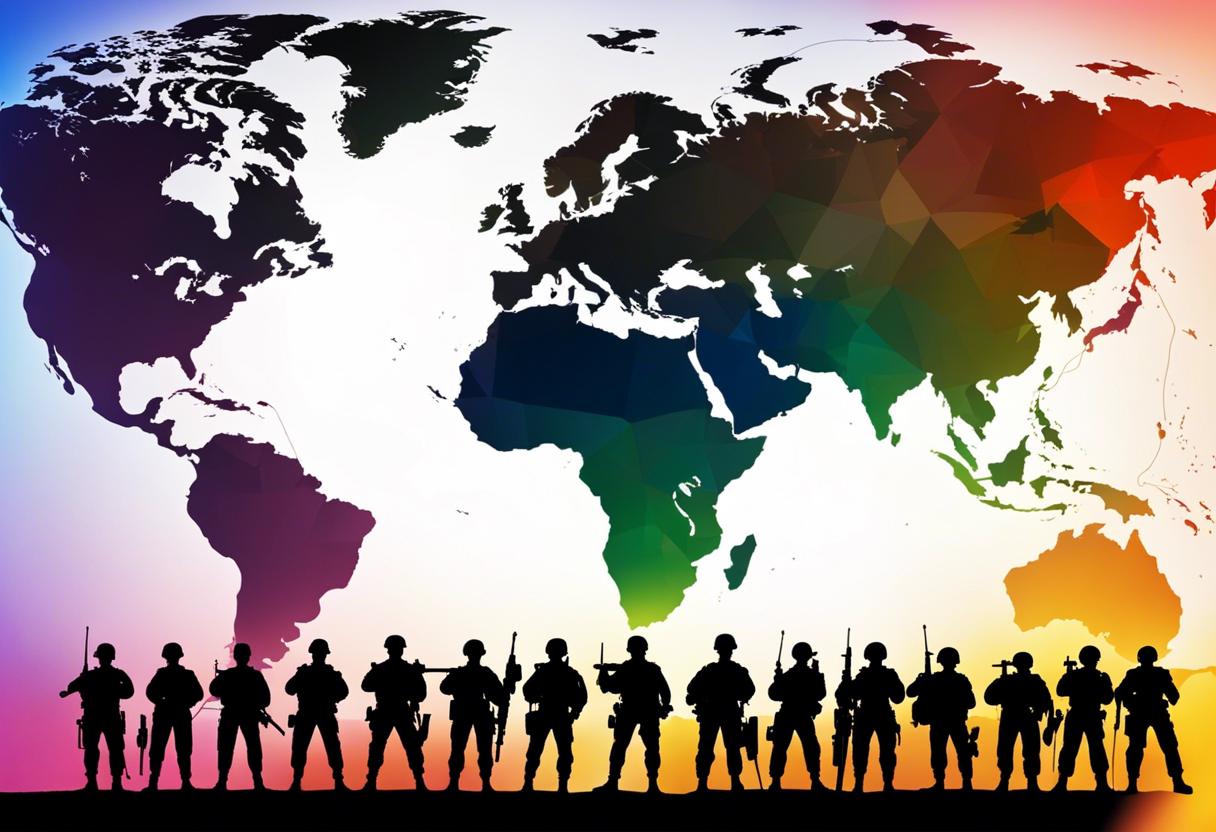Dear Editor, Fintan Lane’s assertion in his June 20th letter that a marked rise in defence budget wouldn’t sit well with Irish citizens might hold some truth. Even though he refrains from discussing the implications of present spending rates. Currently, Ireland lacks the resources to monitor its airspace and its naval force is enough for only one ship patrol across its expansive maritime economic region. The land forces’ ability to execute peacekeeping missions has been hampered too, meaning our pledge to the United Nations Disengagement Observer Force on the Golan Heights had to be suspended.
The task of defending our airspace falls to the RAF because of this. If a larger conflict arises between Russia and NATO, we will have no option but to rely on NATO’s sea and air defence as they would initially face the most impact.
Though our current stance is theoretically one of military neutrality – equating to no NATO membership but utilising its protective shield – pragmatically, we do collaborate with the organisation. We have even been a part of NATO-directed operations in the Balkans and Afghanistan, as well as participating in EU Battle Groups with plans to do so again.
Despite limited resources, our Defence Forces also strive to adhere to NATO norms and methodologies. Additionally, we offer restricted military aid to Ukraine. Simultaneously, our Defence Forces contribute to UN-sanctioned peacekeeping missions, as do some NATO affiliates. With our geographic positioning in the North Atlantic, trade habits, investment strategies, labour mobility, and EU affiliation, this approach can be viewed as sound and pragmatic. However, this is not neutrality in its truest form, so we should stop masking it as such.
In light of this, openly supporting Ukraine is a move in the right direction.
Being neutral is not necessarily a requirement to be an advocate or work in favour of peace. Despite being a member of NATO, Norway is highly regarded for its peace-promoting activities. Troops from countries such as France, Netherlands, Italy, Norway, Britain, Canada, and Denmark have worked alongside Irish Defence Forces and troops from Sweden and Finland, both formerly neutral, in peacekeeping operations in Lebanon and Cyprus under the United Nations. This fact emphasises that our existing, albeit underfunded, policies don’t restrict us from continuing to utilise our influence for the sake of peace, including ongoing participation in peacekeeping operations.
On the other hand, Fintan Lane suggests that our vague concept of neutrality strengthens our capacity to impact global matters and fend off militancy. He also proposes that enhancing military expense in order to acquire the usual abilities of a neutral European nation would be futilely spent.
However, the reality is different. Our lack of substantial military ability and excessive reliance on a foreign NATO power with nuclear weapons for our basic air and sea protection essentially erodes our validity. Instead of being perceived as powerful, neutral, and independent, our nation is seen as complacent, self-satisfied spongers. Internationally, our role resembles a NATO protectorate, if not an implicit NATO member.
Mr Lane is also questioning the presence of Russian vessels in our ostensibly neutral waters just before the Ukraine invasion. Moreover, he suggests that an increase in military spending would necessitate reaching NATO levels of expenditure (2% of GDP, roughly €10 billion).
Conversely, the reality is that even the most aggressive plan for our military, as proposed in the recent Commission on the Defence Forces report, recommends spending of just under €3 billion. Even then, this level of funding would merely equip us with the minimal capability to secure our seas and airspace without full NATO reliance, which is an essential condition for any state asserting neutrality.
Just as Mr Lane, I am committed to the vision of an impartial Ireland, one that stands as a true beacon of peace and fairness. However, contrary to Mr Lane, I understand that this is an unattainable goal until we mature as a nation and invest in a robust Defence Force appropriate for a compact, independent country. – Yours sincerely,
RUÁN Ó CRUALAOICH,
Douglas,
Cork.

